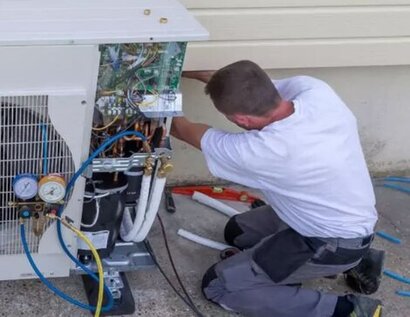Key Takeaways
- Electricity pricing significantly impacts heat pump market competitiveness, with higher electricity taxes deterring adoption.
- Eight out of seventeen examined European countries heavily tax electricity compared to gas, leading to lower heat pump sales.
- Experts advocate for rebalancing energy taxation to promote heat pump usage as part of Europe’s energy security strategy.
Energy Taxation and Heat Pump Adoption
A recent analysis by the European Heat Pump Association (EHPA) highlights the impact of energy taxation on heat pump adoption across Europe. The study found that heat pumps become most competitive when electricity prices are no more than double that of gas. However, government-imposed taxes and levies can complicate this equation, with many European countries imposing heavy taxes on electricity compared to gas.
Among the countries assessed, eight out of seventeen tax electricity at rates at least three times higher than gas, correlating with poor heat pump sales in these regions. Notably, Poland and Belgium impose the highest electricity taxes, with Poland taxing electricity seven times more than gas. In contrast, countries like Sweden and Ireland have reversed this trend, offering lower electricity taxes and supporting fossil fuel taxation. This shift has led to a notable increase in heat pump installations in these nations.
Paul Kenny, director general of the EHPA, emphasizes the urgency for European leaders to enhance energy security by transitioning from fossil fuel heating to heat pumps. He suggests that adjusting electricity taxation should be a priority in any future European energy security frameworks. The push for innovative energy solutions comes as Europe grapples with its high dependency on imported fossil fuels, which has been identified as a significant vulnerability.
The European Commission recognizes heat pumps as critical technology for not only reducing reliance on Russian gas but also for improving overall industrial competitiveness. According to their assessments, widespread adoption of heat pumps and home energy efficiency measures could result in savings of 60 billion euros in avoided fossil fuel imports by the year 2030. EHPA statistics reveal that heat pumps have already achieved a substantial reduction in gas consumption, avoiding 24 billion cubic meters in 2024 alone.
While taxation reform is pivotal, it must be accompanied by robust policy and regulatory support to facilitate heat pump deployment and strengthen energy security. The current tax landscape could deter citizens and businesses from choosing electricity over fossil fuels. Therefore, a balanced and supportive energy taxation policy is essential for a sustainable transition towards renewable energy solutions throughout Europe.
The content above is a summary. For more details, see the source article.















